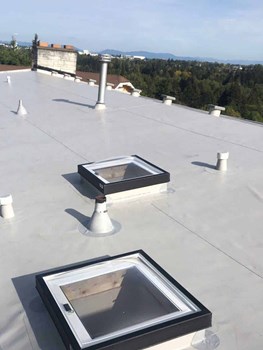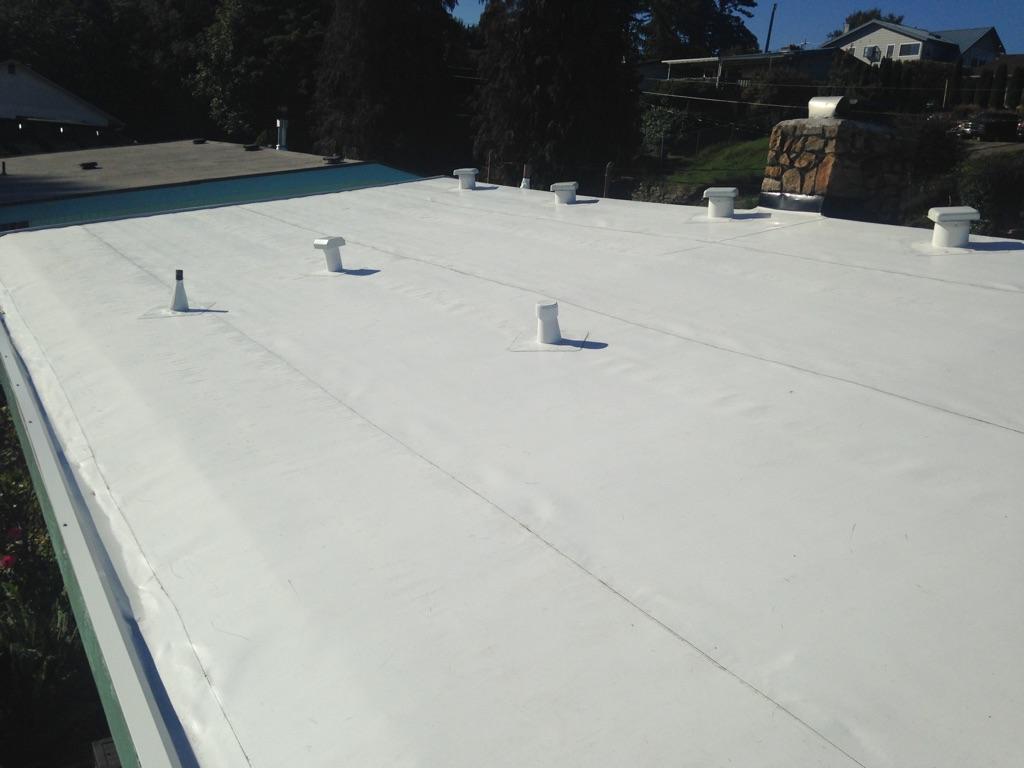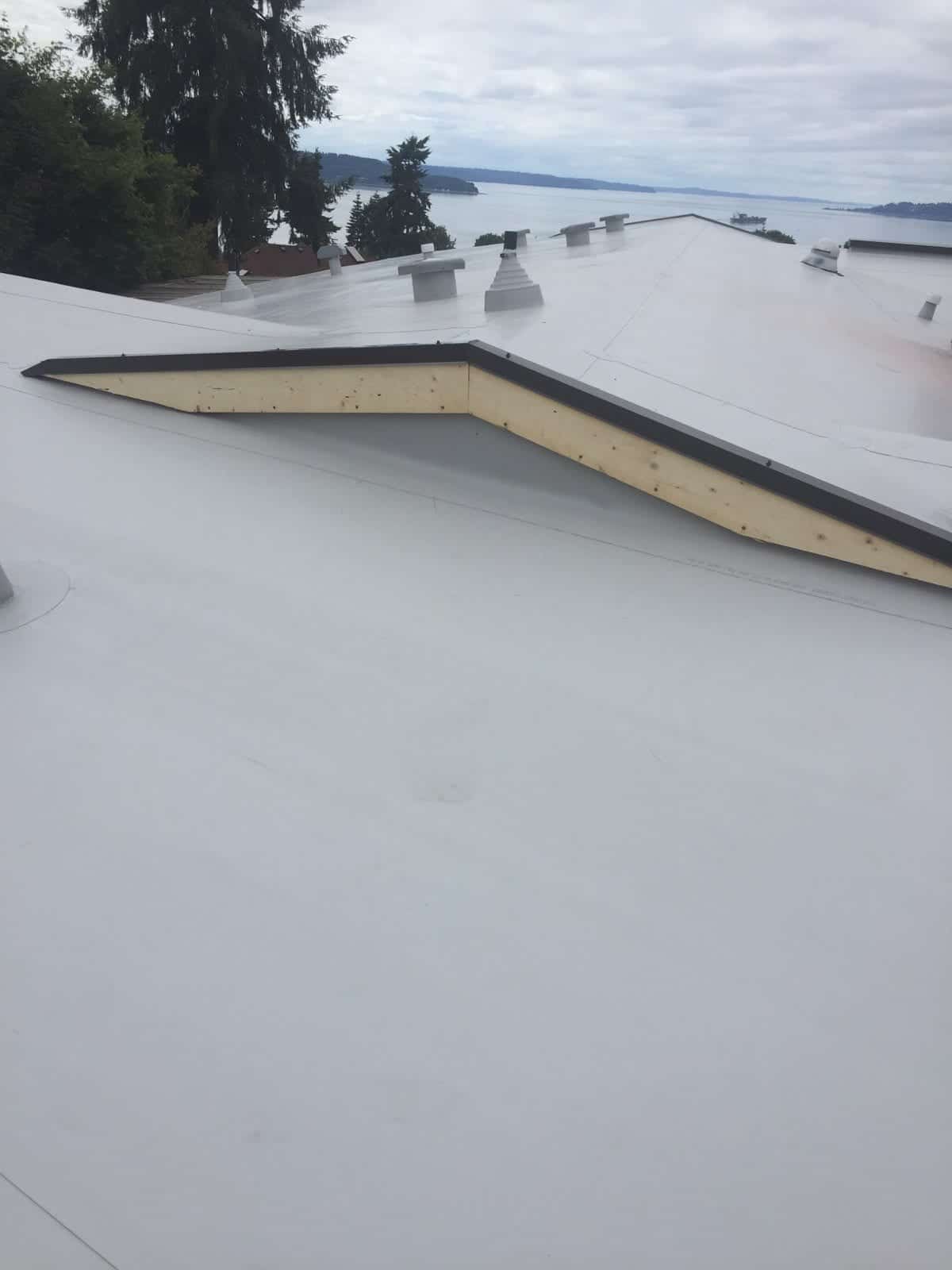TPO and PVC Roofing: Benefits and Differences

At Valentine Roofing, we understand the importance of choosing the right roofing material for your home. When it comes to low-slope roofing options, TPO roofing (Thermoplastic Polyolefin) and PVC roofing (Polyvinyl Chloride) are two popular low-slope choices that offer durability, energy efficiency, and excellent performance. In this blog post, we will discuss the key differences between TPO and PVC roofing to help you make an informed decision for your home.
TPO Roofing: TPO (Thermoplastic Polyolefin) is a single-ply membrane, and is one of the fastest-growing roofing options on the market. Made from sheets of rubber and other synthetics, they can be easily ballasted, mechanically fastened, or chemically adhered to the insulation, creating a fire-rated, reflective, and waterproof surface. A TPO roof typically lasts between 15-20 years.
It is renowned for its energy efficiency, as it reflects sunlight and helps reduce cooling costs during hot summer months. We offer a variety of colors including white, gray, and dark colors.
Benefits:
- Energy-efficient and reduces cooling costs.
- Reflective to UV rays
- Environmentally friendly and recyclable.
- Lightweight, which can lessen the structural load on your home.
- Reasonably cost-effective compared to some other roofing options.

PVC Roofing: PVC roofing is another single-ply membrane known for its exceptional durability and longevity, with a lifespan of around 25 years depending on a variety of different factors. PVC roofing material comprises two layers of PVC with a polyester reinforcement scrim between the layers. Made from a strong synthetic material, PVC roofs are highly resistant to impact, fire, and chemicals. The flexibility of PVC allows it to adapt well to temperature fluctuations without risking cracking or shrinking. This type of roofing is known for its low maintenance requirements, which can be a significant advantage for homeowners seeking a hassle-free option.
Benefits:
- Exceptionally durable and has a long lifespan.
- High resistance to impact, fire, and chemicals.
- Flexible and can handle temperature fluctuations without damage.
- Low maintenance, which reduces long-term costs.
- Excellent track record of performance in various weather conditions.
- Environmentally friendly and recyclable.

Both TPO and PVC roofing offer numerous advantages for low-slope roofs. The decision between the two comes down to your specific home’s needs, climate, budget, and preferences. Our team at Valentine Roofing is here to assist you in making the right choice and providing expert installation services for a roof that will protect your home for years to come.
If you have any further questions or need personalized guidance, feel free to reach out to us at (206) ROOFING. We are committed to ensuring your home receives the best roofing solution possible.
